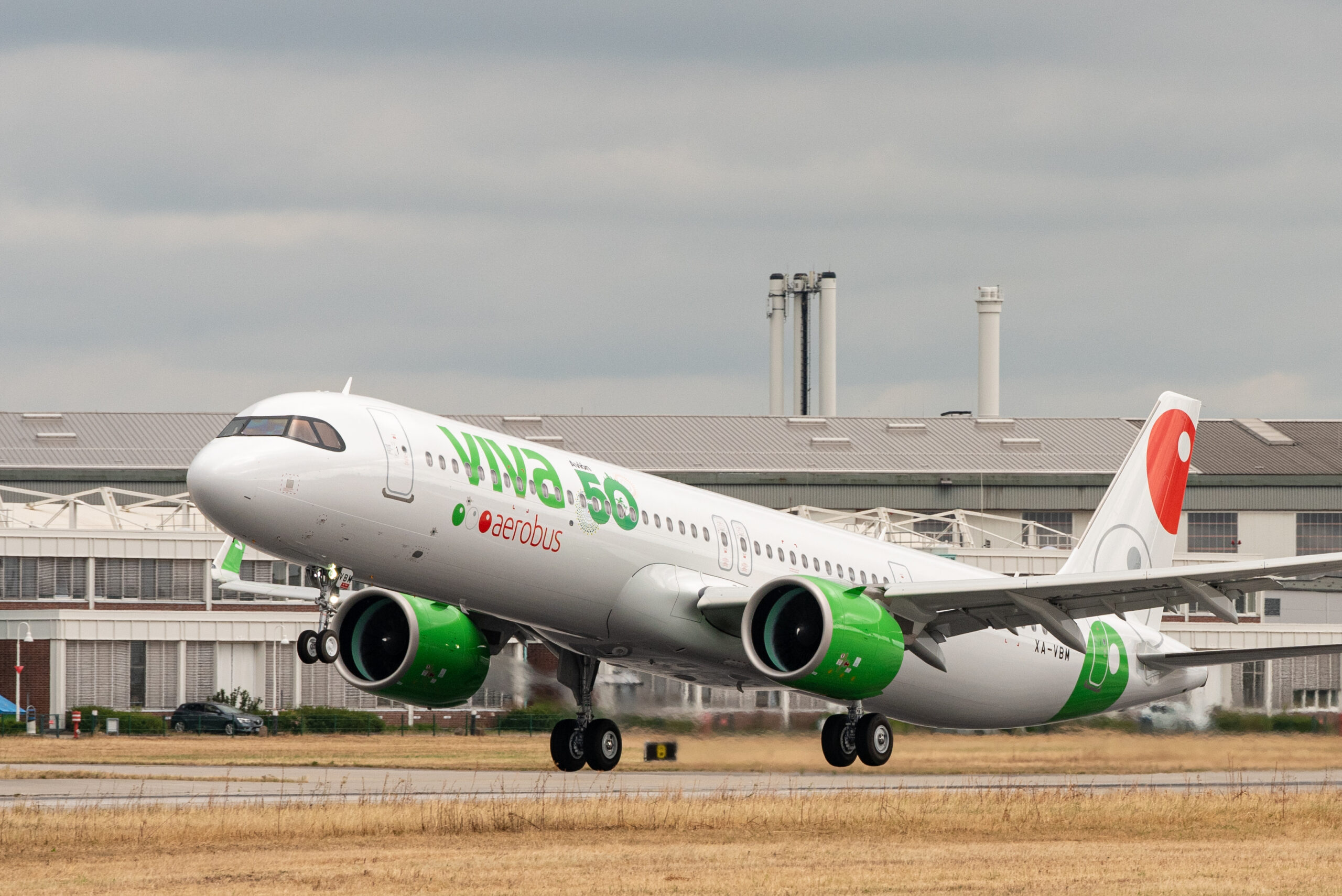Mexico: 20% of Viva Aerobus fleet affected by Pratt & Whitney engine problems
Viva Aerobus joins the list of airlines affected by the accelerated review of PW1000G engines, announced by the American manufacturer Pratt & Whitney. It’s estimated that 15% to 20% of its total fleet will be impacted. This review is scheduled between 2024 and 2026.
This process means that several aircraft will remain grounded for an extended period for thorough inspections by the manufacturer. This is due to an abnormality in the powdered metal used in manufacturing certain engine parts for the GTF engines produced between 2015 and 2021, specifically for Airbus A320neo, Embraer E2, and Airbus A220 models.
Currently, Viva Aerobus operates 22 Airbus A320neo and 25 Airbus A321neo out of its total fleet of 79 active aircraft. The rest comprise 23 Airbus A320ceo and nine A321ceo.
“We are exploring various market alternatives to minimize the impact, ensuring the well-being of our passengers, our Viva team, and our operations during this inspection process,” stated Adrián Torija, Technical Operations Director of Viva Aerobus, in a letter to the airline’s employees.

Among the options are adding new aircraft and extending leasing contracts for some of the existing equipment; as well as short-term aircraft leasing, as mentioned in the airline’s Q3 financial and operational report.
See Also: Viva Aerobus Announces Historic Expansion at Monterrey Airport
Mexico’s low-cost airline aims to maintain its schedule, having recently announced a significant US expansion with up to 30 new routes projected for 2024. The return of Mexico to Category 1 by the US Federal Aviation Administration allowed this expansion, but now faces additional challenges.
This engine review issue affects approximately 42 airlines globally, including Mexican airlines. In this context, Volaris has also announced frequency and job cuts as a result of these reviews, and several airlines are seeking financial compensation from the manufacturer.
See Also: Airbus and RTX Stocks Drop Following Confirmation of a Defect in Pratt & Whitney PW1100G Engines
Pratt & Whitney Crisis for A220, E2, and A320neo
With the emerging issues of the PW1000G engines, an additional inspection has been mandated for Pratt & Whitney equipment. Regulations require airlines using Pratt & Whitney engines to conduct inspections that can last up to a month per aircraft.
The defect originates from the powdered metal used in manufacturing specific engine components. RTX, the parent company of aircraft engine manufacturer Pratt & Whitney, clarified that engines currently in production are not affected by this issue.
See Also: FAA Issues Inspection Alert for Some Pratt & Whitney PW1000G Engines
The inspection aims to prevent a catastrophic in-flight failure. It’s conducted using ultrasound on the first and second-stage high-pressure turbine discs of the engine. If fatigue is detected in any turbine disc, they must be replaced immediately.
The issue particularly affects the Airbus A320neo, a narrow-body aircraft and one of the most sought-after planes globally. Pratt & Whitney anticipates that nearly 1,000 more engines will need to be removed from airline fleets for inspections over the next nine to twelve months.

/https://aviacionlinecdn.eleco.com.ar/media/2022/04/MSN10343-50th-Viva-Aerobus-3-scaled.jpg)
Para comentar, debés estar registradoPor favor, iniciá sesión